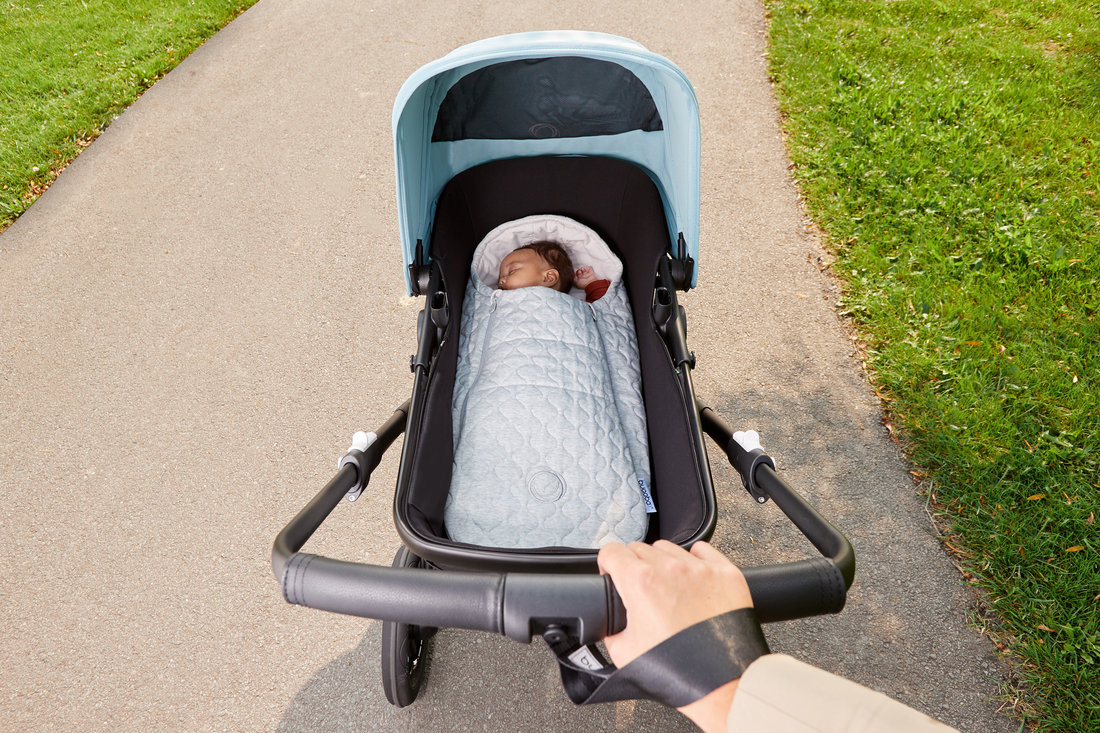
Everything about baby sleep: tips, rhythms and safety
Share
The road to restful sleep for your baby can be challenging, but don't worry - you're not alone. Getting started can be tricky, as many newborns need time to develop a regular sleep cycle, while others quickly adjust to day and night rhythms. Here are some tips for a relaxed and restful baby sleep.
Individual sleep patterns - sleeping according to plan? Not possible.
Every baby is unique, as is their sleeping pattern. In the first three months, sleeping habits vary considerably - babies sleep an average of 14 to 17 hours a day. Between the fourth and eleventh month, sleep needs are around 12 to 15 hours. It is important to understand that individual differences in sleep needs and patterns are completely normal. The rhythm changes over time, influenced by the baby's age and growth phases.
Patience on the way to a regular sleep rhythm
Babies are born without a fixed sleep rhythm. At first, sleep and wake phases are evenly distributed throughout the day and night. Babies often wake up at night, whether from hunger, cold or loneliness. Parents should be prepared for this and adapt flexibly to their baby's nighttime needs. Over the course of the first year of life, a more fixed day/night rhythm gradually develops. The timing of the transition is as individual as each baby's need for sleep.
Sleep Environment: A Key to Successful Sleep
The design of the sleeping environment is crucial for the safety and well-being of your baby. The room temperature should be between 18 and 20 degrees Celsius. Smoking in the home should be avoided and the baby should sleep on its back, ideally in an age-appropriate baby sleeping bag. Pillows are not necessary in the first year of life and fur blankets in the crib are not recommended. A bassinet or a small baby bed can initially give the newborn a feeling of security and safety. As well as anything that reminds them of the womb: This includes proximity to the caregiver, noticeable boundaries around the baby, e.g. with a snake pillow, as well as familiar voices that the little one knows.
Safety and well-being for a peaceful sleep
To ensure your baby's safety, we recommend using a baby sleeping bag instead of a blanket. This way, the baby is always warmly dressed and cannot accidentally cover itself or pull the blanket over its head. Toys or cuddly toys do not belong in the baby's bed, but should be placed outside. A quiet atmosphere in the bedroom and quiet conversations at night help to ensure that the baby can sleep undisturbed. If the baby wakes up at night because of hunger or other needs, careful, calm interaction is important.
sleep rituals and sleep aids
A structured daily routine and a feeling of security give the baby security and orientation. In general, it is beneficial for the child to introduce a fixed bedtime routine. This helps the baby to recognize that it is now time to sleep. It is advisable to maintain a consistent routine at around the same time, such as changing the diaper, putting on pajamas, laying the child down and singing a song. An evening ritual with a warm bath, a bedtime story and quiet music can work wonders. Avoid excessive noise, bright lights or overstimulating elements (music, television, electronic devices, etc.) in the evening to prepare the baby for nighttime sleep.
Crying baby: Where can I get support?
Some babies have trouble sleeping, cry a lot and are difficult to calm down. In such situations, it is important to know where to find help. Pediatricians, midwives or mother-father advice centers can give valuable advice. Special advice centers and crying clinics offer support for parents and their babies who are going through this difficult phase. Don't be afraid to seek advice.
closing remarks
Baby sleep is definitely a challenge. With understanding, patience and a good dose of love, you can positively influence your child's sleeping habits. Create a cozy, safe sleeping environment and establish calming rituals. Remember, every child is unique and there is no one-size-fits-all rule. Stay flexible, observe your child and adapt sleeping habits. After all, a well-rested child also means peace and relaxation for the whole family. Actively remind yourself that even the most challenging phases will pass. Good night!
